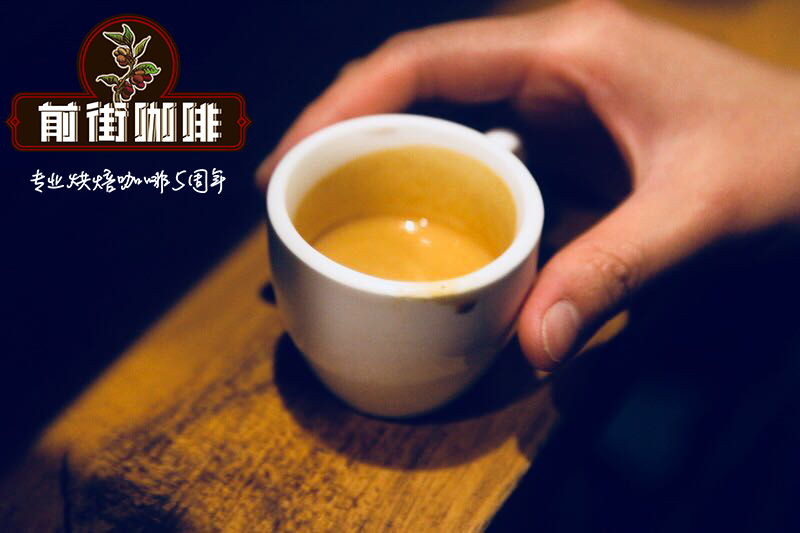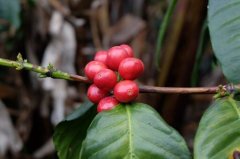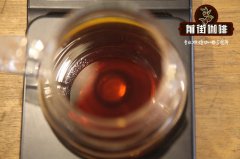Do you know the history of Chinese coffee culture? what is the development of coffee in China?

Professional coffee knowledge exchange more coffee bean information please follow the coffee workshop (Wechat official account cafe_style)
Coffee has entered China hundreds of years ago, but because it is imported, coffee has not been valued in China before, and I did not think that coffee will be developed into a choice for a new era in China. But in China today, coffee has become the heart of many fashionable people. Since coffee is so popular among Chinese people, let's learn about the coffee culture and development of coffee in China.
Chinese coffee culture
The word "coffee" comes from the Greek word "Kaweh", which means "strength and passion". Coffee tree is an evergreen shrub of Capsaceae. Daily coffee is made from coffee beans combined with a variety of cooking utensils, and coffee beans refer to the nuts in the fruit of coffee trees, which are then roasted with appropriate roasting methods.
In China, people like drinking coffee more and more. The "coffee culture" that follows is full of every moment of life. People are tasting coffee at home, in the office, or on various social occasions: it is gradually associated with fashion and modern life. Coffee houses everywhere have become good places for people to talk, listen to music and rest, and coffee has gradually developed into a culture. Whether it is freshly ground coffee beans or freshly brewed hot coffee, it exudes a rich aroma and makes people intoxicated.
There are many ways to savor this intoxication: Italian espresso (espresso), cappuccino (cappuccino), latte, flavored coffee; they offer a variety of options for coffee shop patrons in Beijing, Shanghai and other big cities in China. Chinese people also gradually like to make their own coffee. Using roasted coffee beans, filter pots and filter paper to make a cup of fresh coffee also has a different taste.
The Development of Coffee in China
We can no longer verify when the finished coffee entered China, and according to historical records, in the tenth year of Guang Xu in the Qing Dynasty (AD 1884), a British tea merchant found that the climate in Taiwan was very similar to that in Central and South America, so it should be a good geography for growing coffee. As a result, the businessman introduced 100 Arabian coffee trees to Taiwan to grow, thus becoming the "ancestor" of Chinese coffee, opening the prelude to the development of coffee in China. Taiwanese drinking coffee is like a national movement, not only in cafes, but also in fast food restaurants.
The earliest coffee cultivation in mainland China began in Yunnan. At the beginning of the 20th century, a French missionary brought the first coffee seedlings to Zhu Kula (the source of the valley) in Binchuan County, Yunnan Province. Now in Guangdong, Guangxi, Yunnan, Taiwan and Xiamen in Fujian, there are coffee trees introduced more than a hundred years ago, that is, "Chinese coffee" (Chinese coffee). The coffee culture of Chinese mainland should start from the Anglo-French-Japanese concession in old Shanghai. as the oriental metropolis of "Pearl of the Orient", the development of coffee culture in old Shanghai should be said to be the earliest in China, and the cafes at that time were haunted by foreigners and first-class Chinese.
Now in China, people like to drink coffee more and more, and the "coffee culture" is full of every moment of life. People are tasting coffee at home, in the office, or on various social occasions: it is gradually associated with fashion and modern life. Coffee houses everywhere have become good places for people to talk, listen to music and rest, and coffee has gradually developed into a culture. Whether it is freshly ground coffee beans or freshly brewed hot coffee, it exudes a rich aroma and makes people intoxicated. At the same time, thousands of cafes seem to be all over the cities overnight. China, an ancient civilization, will eventually create its own coffee culture.
The development process of coffee in China is also very difficult. Previous feudal ideas made coffee completely unpopular in China, resulting in the stagnation of coffee development. If it were not for China's reform and opening up, the development process of coffee in China would be even more difficult than it is now. After all, China is a country with thousands of years of tea history and culture. Fortunately, the development of trade in recent years has led to the development of coffee. I hope China can develop its own coffee culture.
END
Important Notice :
前街咖啡 FrontStreet Coffee has moved to new addredd:
FrontStreet Coffee Address: 315,Donghua East Road,GuangZhou
Tel:020 38364473
- Prev

Ranking of Chinese freshly ground coffee powder brands _ which brand is better for freshly ground coffee powder
Professional coffee knowledge exchange more coffee bean information Please follow the coffee workshop (Wechat official account cafe_style) recently tried a lot of coffee brands, after the first cup of illy at home, all the other brands were banned by me and thrown into the dustbin. Illy deep roasting, the first taste of the feeling, fully meet all my requirements for American coffee: mellow, rich, rich
- Next

Several major extraction elements that need to be mastered in order to make coffee better.
Professional coffee knowledge exchange more coffee bean information please follow the coffee workshop (Wechat official account cafe_style) Coffee extraction six key factors in order to extract coffee with good aroma and quality, you need to master six factors. (1) the correct ratio of water to powder is important in order to extract complete coffee, the balance between intensity (concentration of solute) and extraction (yield of dissolution) is very important. Because once you change it,
Related
- Beginners will see the "Coffee pull flower" guide!
- What is the difference between ice blog purified milk and ordinary milk coffee?
- Why is the Philippines the largest producer of crops in Liberia?
- For coffee extraction, should the fine powder be retained?
- How does extracted espresso fill pressed powder? How much strength does it take to press the powder?
- How to make jasmine cold extract coffee? Is the jasmine + latte good?
- Will this little toy really make the coffee taste better? How does Lily Drip affect coffee extraction?
- Will the action of slapping the filter cup also affect coffee extraction?
- What's the difference between powder-to-water ratio and powder-to-liquid ratio?
- What is the Ethiopian local species? What does it have to do with Heirloom native species?

